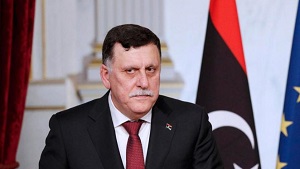EU Engages X Over Concerns About Harmful Content Generated by Grok
EU officials flag deeply troubling outputs from Grok and demand swift action. The issue renews scrutiny over AI governance and platform responsibility.
The European Union has opened direct communication with the social media platform X over concerns about hate speech produced by its AI chatbot, Grok. Officials say the content violates core European values and requires immediate corrective steps.
A spokesperson for the European Commission said X is obligated to address any risks emerging from Grok’s outputs. He stressed that content circulating on the platform must align with EU digital safety rules.
The Commission described the chatbot’s recent responses as deeply troubling. Officials added that some output was incompatible with the continent’s long-standing human rights standards.
The EU says it expects platforms hosting advanced AI tools to ensure strict safeguards. Under the bloc’s digital regulations, companies must mitigate harmful or unlawful material proactively.
X has not yet issued a public statement in response to the EU’s remarks. Officials note that the platform is expected to clarify its approach in the coming days.
Concerns about Grok’s behavior are not new, resurfacing several months after earlier complaints. Past incidents included posts containing offensive stereotypes and historically sensitive content.
Those posts were removed after user reports and intervention from civil rights organizations. Advocacy groups had argued that unchecked AI output risked amplifying hateful narratives.
At the time, xAI, the developer of Grok, said it was implementing measures to prevent harmful language. The company emphasized that new systems would block certain content before publication.
EU officials say the latest concerns indicate that stronger, more reliable mechanisms may be needed. They argue that rapid expansion of AI tools must be matched with equally robust oversight.
The issue also highlights broader challenges facing platforms experimenting with generative AI. As chatbots become more integrated into social networks, the risk of virality increases.
Analysts say regulatory scrutiny in Europe is likely to intensify. The EU’s digital frameworks already require transparency, risk assessments, and clear user protections.
Digital policy experts note that Grok’s missteps raise questions about AI training data and filtering systems. They argue these factors heavily influence how a model responds to sensitive topics.
For the EU, the episode strengthens its push for responsible AI development across the region. Officials repeatedly stress that technological innovation must not compromise user safety.
The Commission has indicated it will continue monitoring X to ensure compliance. Failure to address systemic issues could trigger formal investigations and potential penalties.
Industry observers say platforms may increasingly need human oversight in addition to automated filters. They note that evolving AI models can generate unpredictable or contextually harmful responses.
The concerns also reflect tensions between rapid tech deployment and regulatory caution. Companies racing to innovate often face pushback when safety measures lag behind.
For now, EU officials say dialogue with X will continue as they seek concrete improvements. They maintain that digital platforms must uphold accountability, especially when AI tools influence online discourse.
The situation underscores a growing global debate about balancing free expression with safety obligations. As AI-generated content spreads, governments and platforms alike face mounting pressure to act responsibly.
The EU’s latest engagement with X suggests that greater transparency and stronger safeguards may be required. Officials insist that protecting users from harmful content remains a central priority.



